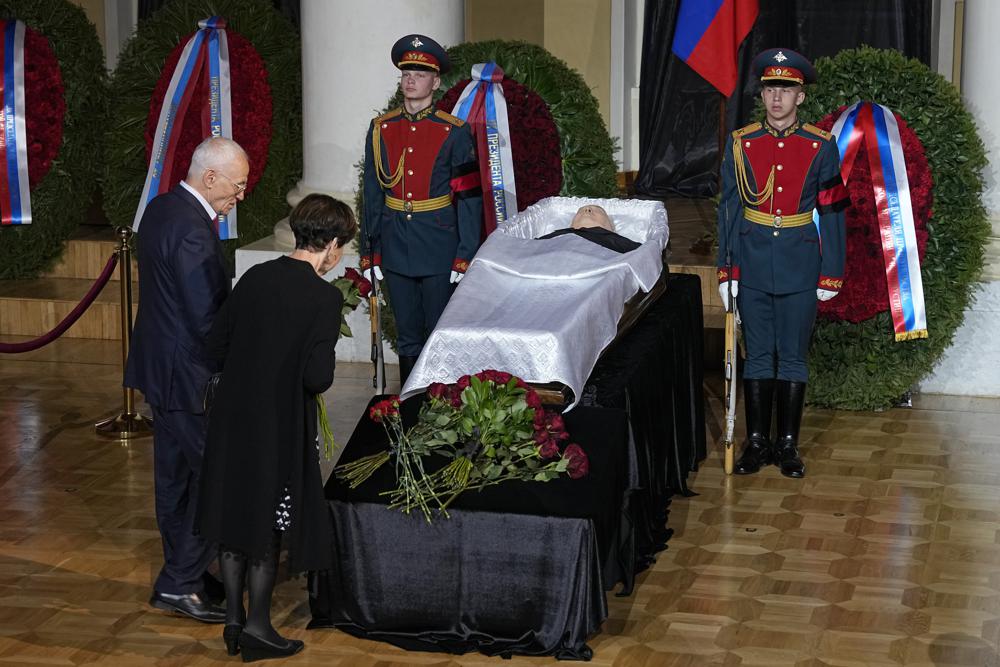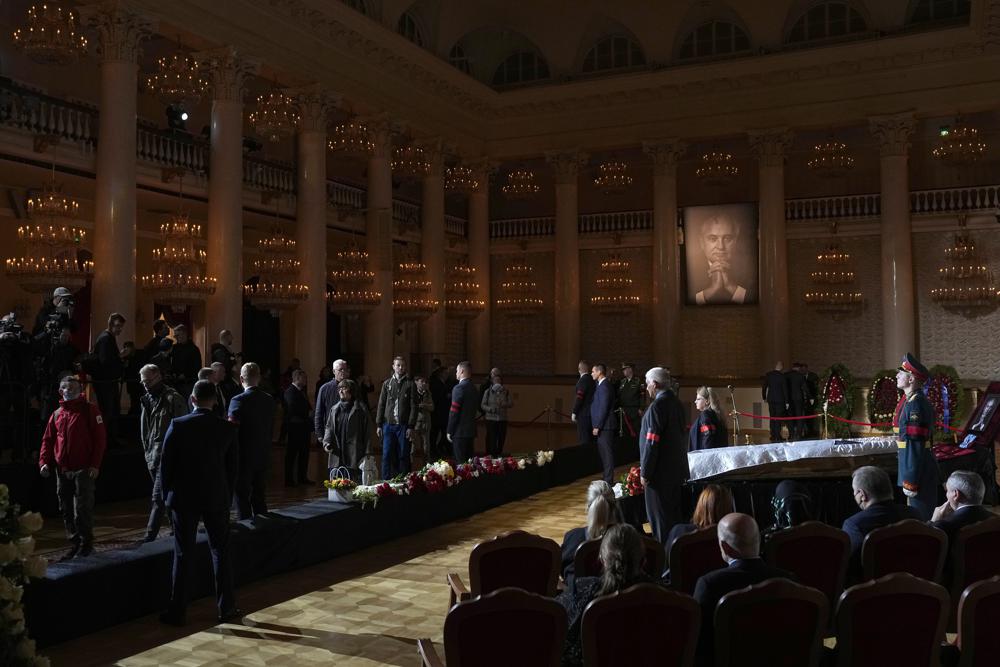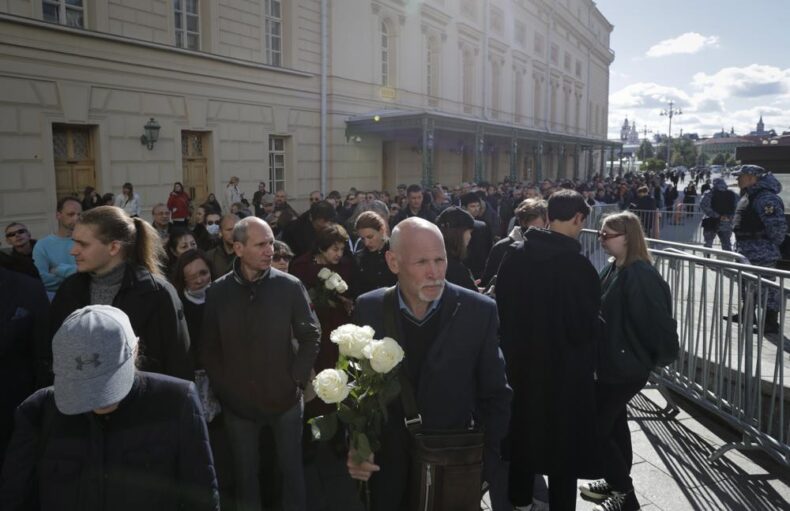Mikhail Gorbachev, the former Soviet leader whose farewell speech was ignored by Russian President Vladimir Putin, was remembered by thousands of mourners on Saturday.
Radical reforms initiated by Gorbachev caused the dissolution of the Soviet Union and helped bring an end to the Cold War.

Thousands of mourners gathered on Saturday to pay their respects to former Soviet leader Mikhail Gorbachev, whose farewell address was shunned by Russian President Vladimir Putin. Gorbachev introduced radical reforms that contributed to the end of the Cold War and sparked the breakup of the Soviet Union.
The Kremlin’s reluctance to announce a state burial reveals its unease with Gorbachev’s legacy. While he is revered internationally for bringing down the Iron Curtain, he is despised at home for the fall of the Soviet Union and the accompanying economic catastrophe that sent millions into poverty.
In a private ceremony on Thursday, Putin placed flowers at Gorbachev’s casket in the Moscow hospital where he passed away.
According to the Kremlin, the president wouldn’t be able to attend the funeral due to his hectic schedule.
When asked what particular matters would keep Putin busy on Saturday, Kremlin spokesman Dmitry Peskov told reporters that the president would have several working meetings, make an international call, and need to prepare for a business forum in Russia’s Far East that he is expected to attend next week.
After a farewell ceremony in the Pillar Hall of the House of the Unions, a lavish 18th-century mansion close to the Kremlin that has hosted state funerals since Soviet times, Gorbachev, who passed away on Tuesday at the age of 91, will be laid to rest alongside his wife, Raisa, at Moscow’s Novodevichy cemetery.
Mourners laid flowers alongside Gorbachev’s open casket, guarded by honour guards, during the service on Saturday while sombre music played. Irina Gorbachev, the daughter of Gorbachev, and his two grandchildren sat next to the coffin.
In addition to hosting balls for the nobility under the czars, the opulent, chandeliered hall adorned with columns served as a location for important conferences and congresses as well as state funerals throughout the Soviet era.
As they entered the structure, mourners noticed honour guards stationed on either side of a big photograph of Gorbachev grinning widely, a reminder of the upbeat vitality he gave to the Soviet leadership following a string of gloomy, ailing predecessors.
Despite selecting such a prominent location for the farewell service, the Kremlin refrained from referring to it as a state funeral. However, Peskov did indicate that it would include “components” of one, like honorary guards and government support for planning. He declined to explain how it would differ from a traditional state funeral.

Declaring a state funeral for Gorbachev would have required Moscow to invite world leaders, something it appears to have been unwilling to do given the rising tensions with the West following the deployment of soldiers to Ukraine.
It would also have needed Putin to attend. During the goodbye ceremony, Dmitry Medvedev, Putin’s deputy on the Security Council of Russia, which he chairs, attended.
Medvedev was the president of Russia from 2008 to 2012. Then, in a post published on a messaging app, he referred to the Soviet Union’s fall in 1991 and said that the United States and its allies were attempting to manufacture Russia’s dissolution. He called this policy a “chess game with Death” and called it.
The goodbye was attended on Saturday by Hungarian Prime Minister Viktor Orban, who frequently opposes Western sanctions against Russia.
The understated memorial service stood in stark contrast to the extravagant official burial Boris Yeltsin, the country’s first post-Soviet leader, had in 2007. Yeltsin had appointed Putin as his chosen replacement and had therefore prepared the way for Putin to win the presidency by resigning.
The knowledge that the openness Gorbachev supported has been suppressed under Putin cast a cloud over the farewell viewing. Ilya, a mourner in his early 30s who works in financial services, expressed his gratitude for his childhood’s independence:
“I want to thank him for the freedom we don’t have today.” Using the Russian term for Gorbachev’s reform, or reconstruction, programmes, he declared, “I am a son of perestroika.”
Putin, who once referred to the fall of the Soviet Union as the “greatest geopolitical catastrophe of the century,” has avoided making direct personal attacks against Gorbachev. Still, he has been repeatedly held accountable for failing to obtain written guarantees from the West that would have prevented NATO’s expansion eastward.
As a result of the problem, relations between the West and Russia have been strained for years. On February 24, when the Russian president launched troops into Ukraine, the situation became explosive. Putin characterised Gorbachev as a man who had “a huge impact on the path of world history” in a carefully worded letter of sorrow made public on Wednesday.
According to Putin, “He guided the nation through difficult and dramatic transformations, despite the significant foreign policy, economic, and societal obstacles.” He understood the need for reforms and tried to present his solutions to the pressing issues.
The Kremlin’s conflicted feelings toward Gorbachev were reflected in state television broadcasts, which praised him for the high hopes his reforms raised around the world but blamed him for throwing the nation into political upheaval, economic hardship and failing to adequately represent the nation’s interests in negotiations with the West.
By Harsha Josephine Antony | On Sat September 3, 2022, | 9.20 pm IST |












